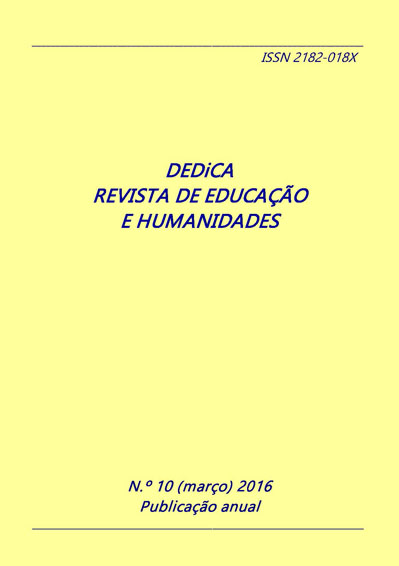Evaluación del modelo de gestión de calidad de la carrera de Ingeniería Química de la Facultad e Ingeniería y Arquitectura de la Universidad de El Salvador
DOI:
https://doi.org/10.30827/dreh.v0i10.6852Palabras clave:
calidad académica, curriculo, modelo de evaluación, componentes curriculares, plan de mejora, mediciónResumen
Este estudio se centra en presentar los resultados del proceso de evaluación curricular de la carrera de Ingeniería Química de la Facultad de Ingeniería y Arquitectura de la Universidad de El Salvador (FIA-UES), llevado a cabo con el fin principal de generar información que sea consustancial a un sistema de planificación que induzca a la gestión para la mejora de la misma en todos sus componentes curriculares. La evaluación tomó como referencia los criterios del modelo de evaluación con fines de acreditación formulado por la Agencia Centroamericana de Acreditación de Programas de Arquitectura e Ingeniería en su versión 2008 (ACAAI, 2008), pero con un mecanismo de medición alternativo al propuesto por dicho modelo. Los principales resultados permitieron evidenciar que el proceso de medición planteado en esta investigación, asegura la calidad de los resultados de la evaluación, ya que es significativamente válido y confiable. Por otra parte, el análisis estadístico permitió interpretar la información para identificar aquellas áreas que en función de sus diferencias y de sus aproximaciones al cumplimiento de criterios del modelo ACAAI, 2008, constituyen fortalezas y debilidades del programa. Finalmente, el plan de mejoramiento elaborado, que se basó en el análisis de las pautas identificadas como debilidades prioritarias (D-) y debilidades potenciales (D+), plasma, de forma concreta, las acciones necesarias para potenciar o mejorar aquellos aspectos que se estimaron oportunos en el momento y espacio de la evaluación y que se encaminan a mejorar la calidad académica de la carrera.
Descargas
Citas
Agencia Centroamericana de Acreditación de Programas de Arquitectura e Ingeniería (ACAAI) (2008). Manual de Acreditación de Programas de Arquitectura e Ingeniería. Recuperado de http://www.acaai.org.pa/
Agència per a la Qualitat del Sistema Universitari de Catalunya (AQU Catalunya) (2005a). Guía de evaluación interna de enseñanzas universitarias. Recuperado de www.aqucatalunya.org
Agència per a la Qualitat del Sistema Universitari de Catalunya (AQU Catalunya) (2005b). Marco general para el establecimiento, el seguimiento y la revisión de los planes de mejora. Recuperado de www.aqucatalunya.org
Altbach, P. G.; Reisberg L.; Rumbley, L. E. (2009). Tras la pista de una revolución académica: Informe sobre las tendencias actuales, resumen ejecutivo para la Conferencia Mundial sobre la Educación Superior, organizada por la UNESCO en 2009. París, Francia: Talleres de la UNESCO.
Bolaños, G.; Molina, Z. (2001). Introducción al currículo. San José, Costa Rica: EUNED CR.
Bolívar, A. (1999). La educación no es un mercado. Crítica de la “Gestión de Calidad Total”. Aula de innovación educativa, 83(84), 77-82.
De Becerra, A. G.; Morales, G. F.; Aldana, J. R.; Sabogal, C. F.; Ospina, A. A. (2008). Seguimiento a egresados. Su importancia para las instituciones de educación superior. Revista Teoría y Praxis Investigativa, 3(2), 61-65.
Didriksson, A. (2008). Contexto global de la educación superior en América Latina y El Caribe. En IESALC–UNESCO, Tendencias de la educación superior en América Latina y El Caribe (pp. 21-54). Bogotá (Colombia): Panamericana Formas e Impresos.
Estrada, C. R.; Reyes, I. R.; Pantoja, M. F. (2002). Tendencias de la educación superior en América Latina. Revista Pedagógica Universitaria, 7(3), 47-57.
González, L. (2005). El impacto del proceso de evaluación y acreditación en las universidades de América Latina. Recuperado de www.cedus.cl/files/Impacto_Evaluación_Acreditación_Ues_AL.pdf
Herrera, L.; Fernández, A. M.; Caballero, K.;Trujillo, J. M. (2011). Competencias docentes del profesorado novel participante en un proyecto de mentorización. Implicaciones para el desarrollo profesional universitario. PROFESORADO. Revista de Currículum y Formación del Profesorado, 15(3), 1-29.
Jaramillo, A.; Giraldo, P. A.; Ortiz, C. J. (2006). Estudios sobre Egresados experiencia de la universidad EAFIT. Revista Universidad EAFIT, 42(141), 111-124.
Ley de Educación Superior (2004). Decreto legislativo Nº 48. San Salvador (El Salvador): Asamblea Legislativa de la República de El Salvador.
Martínez, E. (1997). Evaluación en la educación superior. Recuperado de http://www.empvirtual.com/datampu/Planest/martinezedsup.pdf
Pichardo, M. M.; García, B. A.; De la Fuente, A. J.; Justicia, J. F. (2007). El estudio de las expectativas en la universidad: análisis de trabajos empíricos y futuras líneas de investigación. Revista Electrónica de Investigación Educativa, 9(1), 5-6. Recuperado de http://redie.uabc.mx/vol9no1/contenido-pichardo.html
Pulido, G. H. (2005). Calidad total y productividad (2ª Ed.). México: McGraw – Hill Interamericana.
Saravia, G. M. (2004). Evaluación del Profesorado Universitario. Un enfoque desde la Competencia Profesional (Tesis doctoral, Universidad de Barcelona).
Sarzoza, H. S. (2007). Enfoques de aprendizajes y formación en competencias en la educación superior. Granada: Editorial de la Universidad de Granada.
Tünnermann, C. (2007). La evaluación y acreditación de la calidad en América Central. Recuperado de http://hdl.handle.net/2099/7547
Villarroel, C. (2005). Gerencia, planificación y evaluación universitarias. La Revista Venezolana de Educación (Educere), 9(31), 513-522.












